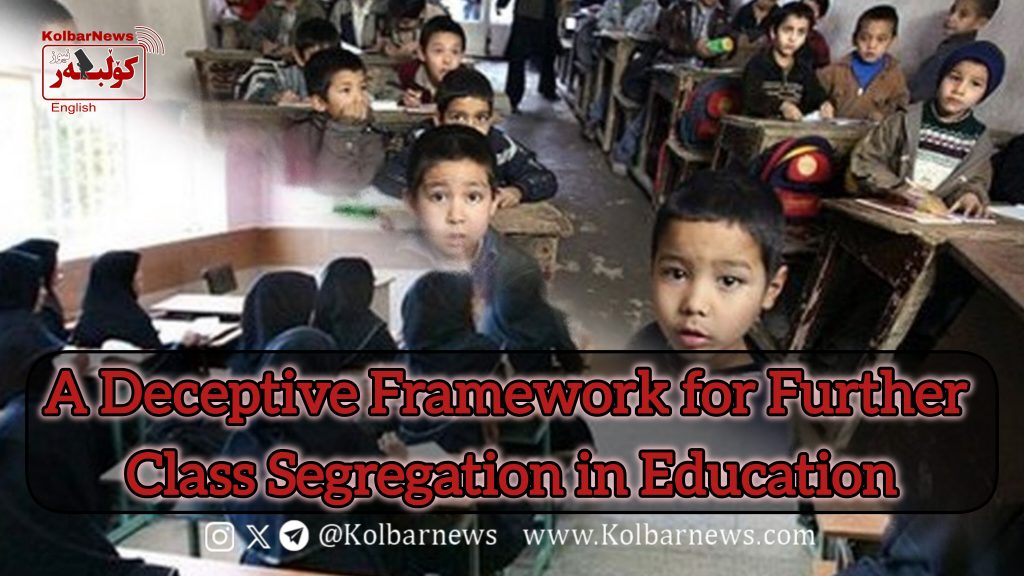
The Parliamentary Research Center has recently designed a plan titled “Strengthening the Education System,” signed by 34 lawmakers and approved by the Minister of Education. According to its designers, the goal of this plan is: “the distribution of resources and facilities of the Ministry of Education, the necessity of diversifying the financial resources of education and opening paths beyond relying solely on government financing, and creating an economic deputy within the Ministry of Education.” Under this plan, by defining special rewards for managers and officials of revenue-generating units, incentives are provided for them to increase their motivation for maximum utilization of education resources.
According to this plan, organizations and centers under the Ministry of Education, including schools, are considered economic units and must themselves be “revenue-generating,” meaning the Ministry of Education would officially and more seriously engage in business ventures. A sociologist commenting on this plan said: “The core of this plan is that the government cannot allocate more resources to public education, so the ministry must seek to diversify its sources. In other words, the government has hit rock bottom financially.”
This plan is essentially nothing more than an expansion of privatization in education, directly overseen by the Ministry of Education. In reality, they aim to further reduce the already meager budgets for education in recent years in Iran. To this end, they reach into the public’s pockets to make up for budget deficits, but they deceptively label it as a plan to increase the salaries of employees and teachers.
According to the latest World Bank report, under the Islamic Republic, Iran has the highest rate of secondary education privatization in the world. The law establishing private schools was passed in 1988. Education was the first area where the Islamic regime opened the door to private interests. The approval of this law marked the beginning of major changes in educational policies. Since then, every year, a policy or measure has been implemented to privatize education further. The new plan proposed by the Islamic parliament is just one of many laws in continuation of neoliberal economic policies. The wrapper of increasing teachers’ salaries through “revenue generation” cannot conceal the government’s attempt to absolve itself of responsibility for the low wages of teachers.
This plan is being introduced at a time when most Iranian citizens are sinking deeper into poverty day by day. According to officials, 70% of Iranian citizens live below the poverty line, and 30% cannot even afford to provide what is referred to as bread for the night, meaning they are in absolute poverty. A part of this population sends their children to work instead of school, and their young daughters face shocking hardships, one of which is early marriage out of necessity.
Under the current administration of education, that portion of the children of workers and the poor who are still able to study in schools thanks to the sacrifices of their parents will be deprived of even this minimal opportunity.
Among the leaders of the Islamic Republic, there is a faction that considers poverty and its devastating results necessary for the arrival of the so-called Savior Imam. These are the hardliners and their ideological leaders. Another faction believes that poverty prevents awareness and organization among the deprived, and any potential blind uprisings will also be suppressed.
However, neither faction has understood the changes in society after the revolutionary uprising of “Woman, Life, Freedom.” Today’s realities in Iranian society show that such self-deceptions or deceptions of the public will lead nowhere, and the Islamic Republic of Iran stands on the edge of its grave. On the ruins of a wealthy and looted Iran, the possibilities for a free environment, prosperous life, and true equal opportunity for all will be built.

